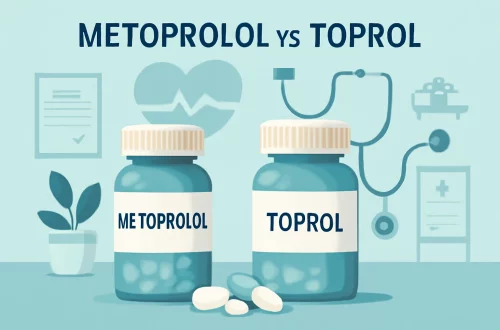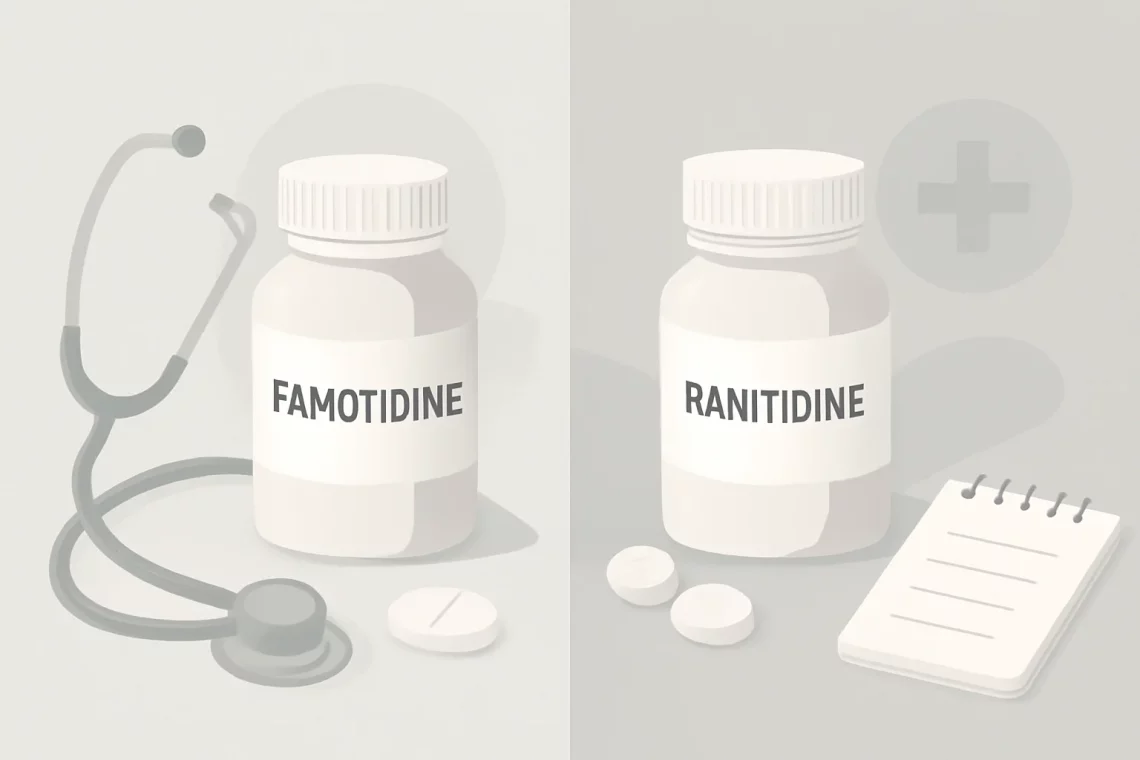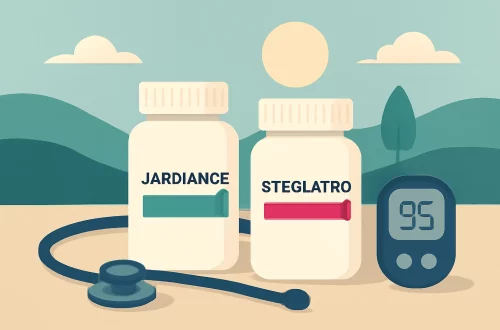-
Tramadol vs Morphine: Understanding Pain Relief Options
Tramadol and morphine are two well-known medications often used for the management of pain, but they belong to different classes of drugs and have distinct properties. Understanding the similarities and differences between these two opioids can be crucial for patients, healthcare providers, and caregivers. Pain management is an essential aspect of medical care, and the choice of medication can significantly impact a patient’s quality of life. While both tramadol and morphine are effective in alleviating pain, their mechanisms of action, side effects, and potential for dependency vary. This complexity often leads to confusion among patients who may not be fully aware of what each medication entails. The opioid crisis has…
-
Probuphine vs Sublocade: A Comprehensive Comparison for Treatment Options
The opioid epidemic has become a pressing public health issue, prompting the development of innovative treatment options to combat addiction. Among these options are Probuphine and Sublocade, two medications designed to help individuals struggling with opioid use disorder. Both of these treatments utilize buprenorphine, an opioid partial agonist, but they differ significantly in their administration methods and overall treatment approaches. Understanding the nuances between these two medications can empower patients, their families, and healthcare providers to make informed decisions regarding treatment plans. With a focus on long-term recovery, these treatments offer unique benefits and challenges that warrant careful consideration. As the landscape of addiction treatment continues to evolve, exploring the…
-
Ativan vs Librium: Understanding Their Differences and Uses
Ativan and Librium are two medications that belong to the benzodiazepine class, commonly prescribed for anxiety-related disorders. While both drugs are effective in treating anxiety, they have different profiles in terms of their chemical structure, duration of action, and specific uses. Understanding the nuances between Ativan (lorazepam) and Librium (chlordiazepoxide) can help patients and healthcare providers make informed decisions about treatment options. This discussion is particularly relevant as anxiety disorders have become increasingly prevalent in today’s fast-paced society. As individuals seek relief from their symptoms, it is essential to understand how these medications work, their potential side effects, and the circumstances under which they are prescribed. Choosing the right medication…
-
Gemtesa vs Oxybutynin: Which Bladder Treatment Is Right for You?
In recent years, the management of urinary conditions has become a focal point in modern medicine. As the prevalence of issues such as overactive bladder (OAB) continues to rise, a range of treatment options has emerged to help individuals regain control over their symptoms. Among these options are prescription medications, specifically Gemtesa and Oxybutynin, both of which have garnered attention for their effectiveness in alleviating symptoms associated with urinary urgency and frequency. These medications work through different mechanisms, targeting various pathways in the body to provide relief. As patients seek solutions, understanding the distinctions between these two drugs becomes crucial. Each offers unique benefits and potential side effects, which can…
-
Famotidine vs Ranitidine: Which Antacid is Right for You?
Famotidine and ranitidine are two medications commonly used to treat conditions related to excess stomach acid, such as gastroesophageal reflux disease (GERD), peptic ulcers, and gastritis. Both belong to a class of drugs known as H2 blockers, which work by inhibiting the action of histamine on the stomach’s H2 receptors. This action ultimately decreases the amount of acid produced by the stomach. Understanding the differences and similarities between these two medications can be crucial for patients dealing with acid-related disorders. While both famotidine and ranitidine serve similar purposes, they have distinct properties, side effects, and usage guidelines. The choice between the two might depend on various factors, including individual health…
-
Metoprolol vs Toprol XL: Key Differences and Similarities Explained
Metoprolol and Toprol XL are frequently discussed in the context of cardiovascular health, particularly for individuals managing conditions like hypertension and heart disease. Both medications belong to a class of drugs known as beta-blockers, which work by blocking the effects of adrenaline on the heart and blood vessels. This action reduces heart rate, blood pressure, and strain on the heart, making these medications effective for various heart-related issues. The distinction between Metoprolol and Toprol XL often confuses patients and healthcare providers alike. While they share a common active ingredient, their formulations and dosing regimens can differ significantly. Understanding these differences is crucial for patients who are prescribed these medications, as…
-
Quviviq vs Belsomra: Comparing Sleep Aids for Better Rest
Sleep disorders affect millions of individuals worldwide, leading to a significant impact on quality of life. As people seek solutions for better sleep, the pharmaceutical industry has responded with various medications designed to aid in sleep initiation and maintenance. Among these medications, Quviviq and Belsomra have emerged as two notable options. Both drugs target sleep issues, yet they possess distinct mechanisms, benefits, and side effects that can influence a patient’s choice. Understanding these differences is essential for anyone considering medication as a solution for their sleep-related challenges. In this exploration of Quviviq and Belsomra, we will delve into their pharmacological properties, efficacy, potential side effects, and user experiences. With a…
-
Mounjaro vs Bydureon: A Comprehensive Comparison of Diabetes Treatments
Mounjaro and Bydureon are two significant medications in the realm of diabetes management, particularly for individuals battling Type 2 diabetes. As the prevalence of this condition continues to rise, so does the need for effective treatments that not only help manage blood sugar levels but also cater to the overall well-being of patients. Both Mounjaro and Bydureon have emerged as popular options, each boasting unique mechanisms of action and benefits. Mounjaro, with its innovative approach, utilizes a dual-action formula that targets multiple pathways involved in glucose control. This offers patients a more comprehensive solution for managing their diabetes. On the other hand, Bydureon, a well-established medication, has been available for…
-
Entyvio vs Rinvoq: A Comprehensive Comparison of Treatments
In recent years, the landscape of biologic treatments for autoimmune diseases has evolved significantly. Patients battling conditions like ulcerative colitis and Crohn’s disease are increasingly faced with a variety of treatment options, each with its own unique mechanism of action, benefits, and potential side effects. Among these options, Entyvio (vedolizumab) and Rinvoq (upadacitinib) have emerged as prominent players in the treatment of inflammatory bowel disease (IBD). As patients and healthcare providers navigate this complex array of treatments, understanding the differences and similarities between these two medications becomes crucial. Both Entyvio and Rinvoq target the immune system but do so in fundamentally different ways. This distinction can influence a patient’s treatment…
-
Metoprolol vs Bisoprolol: Key Differences and Similarities Explained
Metoprolol and bisoprolol are two commonly prescribed medications that belong to the class of drugs known as beta-blockers. These medications are primarily used to manage cardiovascular conditions, including hypertension (high blood pressure), heart failure, and certain types of arrhythmias (irregular heartbeats). Beta-blockers work by blocking the effects of adrenaline on the heart, which helps to reduce heart rate and lower blood pressure. In recent years, there has been significant discussion among healthcare providers and patients regarding the differences and similarities between metoprolol and bisoprolol. Both medications have proven effective, but they do have distinct characteristics, mechanisms of action, and side effect profiles that may influence the choice of one over…






































